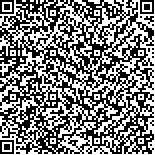| 本文已被:浏览 2373次 下载 2228次 |

码上扫一扫! |
|
|
| 超低温保存后大菱鲆(Scophthalmus maximus)精子的生理活性及其超微结构研究 |
|
张雪雷1, 王文琪2, 肖志忠3, 徐长安4, 蒋日进5, 徐世宏3, 马道远3, 肖永双3, 武宁宁6, 刘清华3, 李 军3
|
|
1.青岛农业大学海洋科学与工程学院 中国科学院海洋研究所;2.青岛农业大学海洋科学与工程学院;3.中国科学院海洋研究所;4.国家海洋局第三海洋研究所;5.浙江海洋学院海洋与渔业研究所;6.青岛市渔业技术推广站
|
|
| 摘要: |
| 采用计算机辅助分析和电子显微镜方法, 对大菱鲆(Scophthalmus maximus)精子生理活性(运动率、运动速度和寿命)和超微结构进行观察, 研究其精子经超低温保存后质量变化情况, 得到了新鲜精子的路径速度[(101.91±9.30)?m/s]、运动率(88.30%±2.62%)和寿命[(368.00±111.50)h], 以及冷冻精子的路径速度[(76.78±8.49)?m/s]、运动率(65.60%±4.76%)和寿命[(120.00±12.00)h]。结果表明, 新鲜精子的生理特性好于冷冻精子。同时通过电镜去进行超微结构分析, 发现大菱鲆精子经过超低温保存后, 40%—60%的精子基本保持正常的形态结构, 其余精子遭受不同程度的机械损伤。其中膜损伤为主要损伤, 损伤精子中60%—70%带有膜损伤。推测大菱鲆精子在冷冻解冻过程中遭受到的机械损伤可能是导致冻精生理活性显著下降的主要原因。 |
| 关键词: 超低温保存 大菱鲆 精子 超微结构 机械损伤 |
| DOI:10.11693/hyhz201304039039 |
| 分类号: |
| 基金项目:现代农业产业技术体系建设专项资金, nycytx-50号; 国家自然科学基金项目, 31072212号, 41076100号; 海洋渔业科学与技术浙江省重中之重学科开放课题, 2012.01—2012.12; 山东省发改委“两区”建设专项资金, 2011.06—2013.12。 |
|
| PHYSIOLOGICAL CHARACTERISTICS AND ULTRASTRUCTURE OF POST-THAW SPERM IN TURBOT SCOPHTHALMUS MAXIMUS |
|
ZHANG Xue-Lei1, WANG Wen-Qi2, XIAO Zhi-Zhong3, XU Chang-An4, JIANG Ri-Jin5, XU Shi-Hong3, MA Dao-Yuan3, XIAO Yong-Shuang3, WU Ning-Ning6, LIU Qing-Hua3, LI Jun3
|
|
1.College of Marine Science and Engineering, Qingdao Agricultural University Institute of Oceanology, Chinese Academy of Sciences;2.College of Marine Science and Engineering, Qingdao Agricultural University;3.Institute of Oceanology, Chinese Academy of Sciences;4.Third Institute of Oceanography, State Oceanic Administration;5.Marine and Fishery Research Institute, Zhejiang Ocean University;6.Qingdao Fishery Technique Promotion Station
|
| Abstract: |
| This study examined the quality of turbot Scophthalmus maximus sperm by observing VAP, motility, longevity and ultrastructures after cryopreservation. The VAP [(101.91±9.30)?m/s], motility (88.30%±2.62%) and longevity [(368.00±111.50)h] of the fresh sperm and the VAP [(76.78±8.49)?m/s], motility (65.60%±4.76%) and longevity [(120.00± 12.00)h] of the post-thaw sperm were obtained by using the computer assisted sperm analysis (CASA). The results show the physiological quality of the fresh sperm were better than those of the post-thaw sperm. The ultrastructure analysis showed 40%—60% of the post-thaw sperm could keep the normal morphology. 60%—70% of the mechanical damage occurred in the nuclear envelope and plasmalemma. We speculated that the mechanical damage occurred in the post-thaw process might be the main reason for physiological activity decline. |
| Key words: cryopreservation turbot Scophthalmus maximus sperm ultrastructure mechanical damage |
